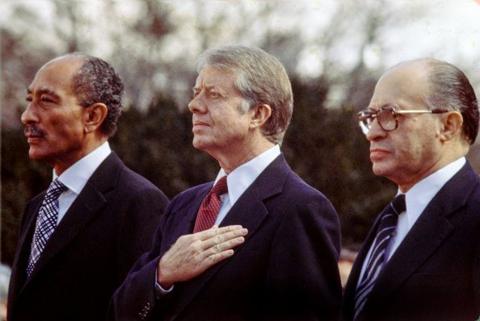Forty-four years elapsed between the time Jimmy Carter left the presidency and the day he died.
Four decades seems like a long time - a record for a former US president - yet many of the challenges facing America in 2024 are not that different from the ones Carter faced, and at times succumbed to, in the late 1970s.
The US during the Carter years faced a crisis of confidence. Americans were grappling with economic turmoil at home and a range of challenges to US power abroad. Fast forward four decades, and the players and issues are strikingly familiar - the economy and the environment, Russia, Afghanistan and the Middle East. Years have passed, the leaders have changed, but the challenges linger.
Carter celebrated the power of US diplomacy by brokering the Camp David peace agreement between Egypt and Israel in 1978, but the glow of success was fleeting. The limits of American power were painfully apparent during the Iranian hostage crisis a year later, after US embassy staff in Tehran were taken prisoner.
It took more than 12 months of intense efforts - diplomatic and military - to free them. The sense of American helplessness contributed to Carter's resounding election loss to Ronald Reagan in 1980, with the prisoners' eventual release coming just hours after Carter left office.
The inability to shape global events even from the world's most powerful office continues to haunt US leaders. Current President Joe Biden's dose of this cold reality first came during the chaotic US withdrawal from Afghanistan in 2021, which lowered the curtain on two decades of futile American nation-building and saw the Taliban sweep back into power.



